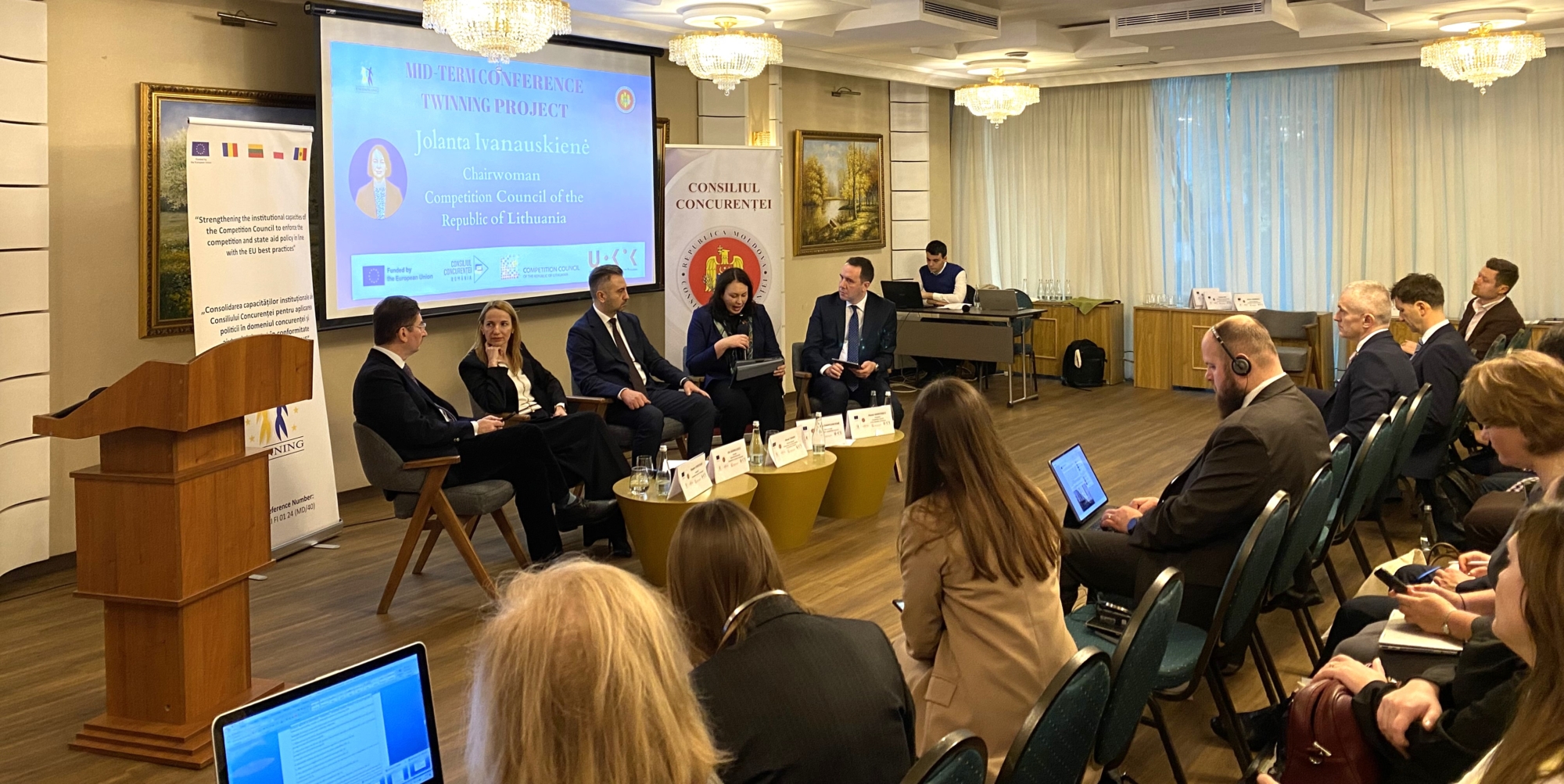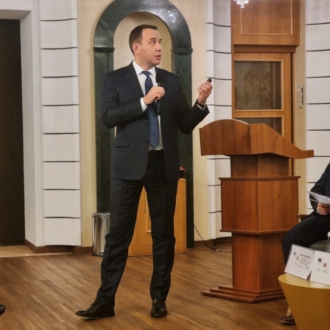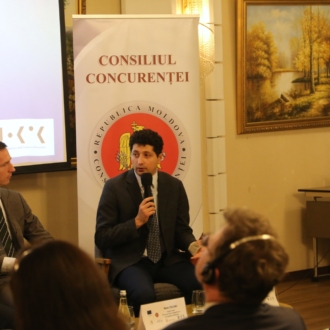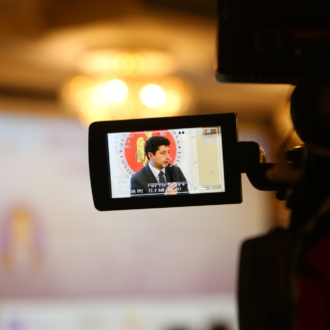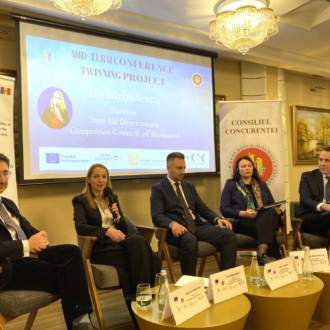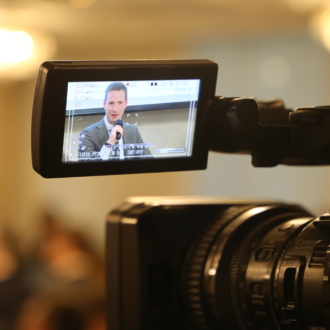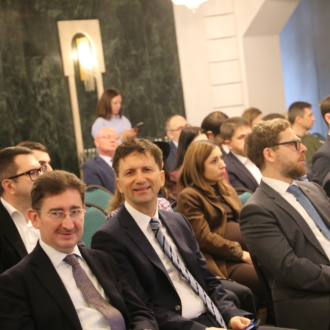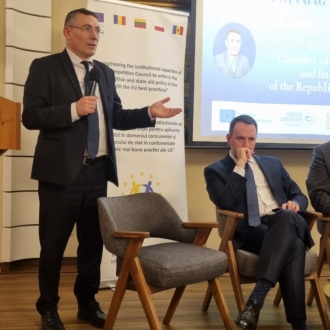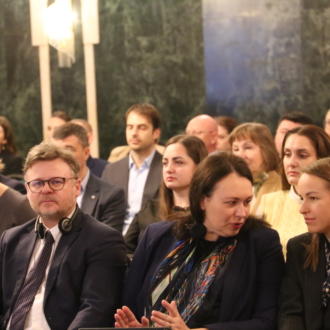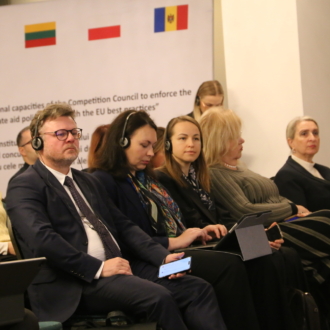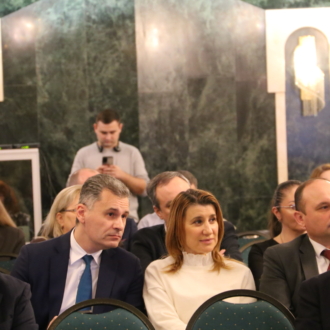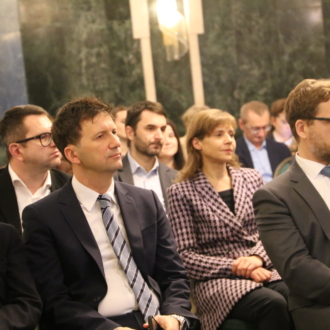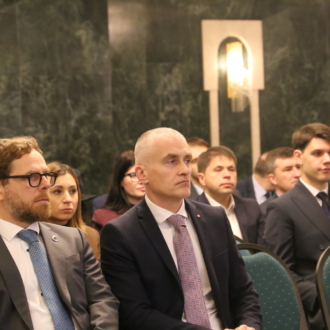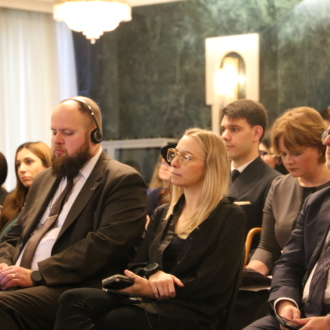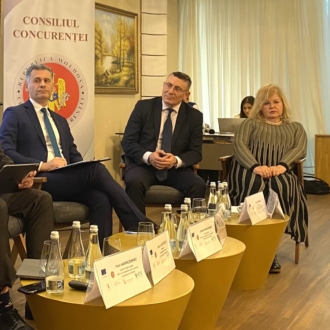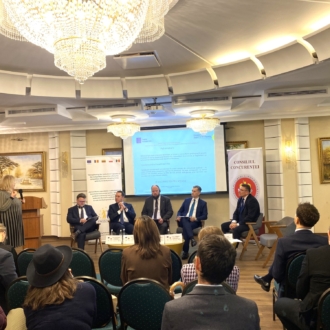On 21 November 2025, in Chișinău, the Mid-Term Conference of the Twinning Project “Strengthening the Institutional Capacity of the Competition Council for the Enforcement of Competition and State Aid Policies in Line with EU Best Practices” took place. The project is financed by the European Union and implemented with the support of partners from Romania, Lithuania, and Poland. Since its launch, more than 60 missions have been carried out, substantially contributing to the institutional development of the Competition Council of the Republic of Moldova (CCRM).
In his opening remarks, Mate Csicsai, Deputy Head of the European Union Delegation, underlined the essential role of competition policy and state aid control in the economic development of the Republic of Moldova, as well as their direct impact on citizens’ daily lives. He stressed that the enforcement of these policies is not merely a chapter of the EU acquis and the screening process, but a key instrument for consumer protection, fair market functioning, and economic growth.
Mate Csicsai expressed gratitude to the implementing partner countries for their support in strengthening the CCRM, enabling it to become a robust authority capable of effectively enforcing the legislation under its mandate. He also acknowledged that nearly half of the positions within the CCRM are currently vacant, but expressed confidence that this situation will be resolved in the near future.
Alexei Gherțescu, President of the CCRM, reiterated the institution’s commitment to reaching the level of its EU counterparts by strengthening its capacity to intervene effectively on the markets, conduct solid investigations, monitor market developments, and exercise effective control of economic concentrations. He highlighted recent progress achieved with the support of the Twinning project, including the completion of several important investigations.
President Gherțescu emphasized that many of the results achieved over the past year may not yet be visible to the broader public, but they represent crucial steps in consolidating the institution. These include the completion of the investigation into the sunflower oil market and the resolution of several cases related to economic concentrations in the retail sector.
He noted that the major challenge at present is the transposition of the new legislative framework on competition and state aid. The legislative package on the Competition Law and the State Aid Law has recently undergone extensive discussion, and secondary legislation will be developed for their effective implementation. He further underlined the complexity of the state aid field, one of the most demanding chapters of the EU accession negotiations.
Radu Marian, Chair of the Parliamentary Committee on Economy, Budget and Finance, commended the efforts of the CCRM, stressing that the institution operates under high expectations from the market. He highlighted the fundamental importance of the competition chapter in the EU accession process and reaffirmed the Parliament’s commitment to supporting the Competition Council in becoming a fair and effective market arbiter.
Mid-Term Results of the Twinning Project
During the session dedicated to interim results, the Twinning project team presented the achievements of the first 14 months of implementation. These include: alignment of Moldovan competition and state aid legislation with the EU acquis, through support in drafting both primary legislation (Competition Law and State Aid Law) and secondary legislation (regulations and guidelines), as well as assessing the compatibility of existing state aid schemes with EU standards; strengthening the administrative capacity of the CCRM to ensure effective enforcement of competition and state aid legislation, including support in developing strategy documents, guidelines, and advocacy materials; enhancing the skills of CCRM staff, through training sessions delivered to staff of the Competition Council, state aid grantors, judges, prosecutors, the State Chancellery and its territorial offices, as well as providing case assistance to the CCRM.
It was emphasized that the forthcoming adoption of the secondary legislation will have a long-term impact on the functioning of the authority and on the competitive environment in the Republic of Moldova.
Panel on the Energy Market
During the panel dedicated to competition in the energy sector, experts from Moldova, Romania, Lithuania and Poland discussed the current challenges of the energy market, including the energy transition, the role of state-owned enterprises, and the need to maintain a fair and competitive regulatory framework. Speakers highlighted the importance of market liberalisation and of strong cooperation between the regulator and the competition authority.
Similarities were drawn between the structural challenges previously faced by Lithuania and those currently encountered by the Republic of Moldova: dependence on external markets, the need to diversify supply sources, and the importance of a consistent liberalisation process. In this context, the speakers encouraged Moldova to capitalise on lessons learned by EU Member States during accession, stressing the importance of rule compliance and avoiding previously encountered mistakes by the member states. The Twinning project was highlighted as an ideal opportunity to acquire best practices in this complex field.
Panel on Unfair Trading Practices
The final panel focused on the transposition and enforcement of Directive (EU) 2019/633 on unfair trading practices in the agricultural and food supply chain. Alexei Gherțescu presented the preliminary findings of the study on unfair trading practices, based on information collected from suppliers and retailers. He noted that previously, the CCRM could only intervene upon complaint, and no complaints had been submitted over the past three years.
Discussions highlighted the need for clear legislation and continuous dialogue between authorities and the business sector. European experts shared examples regarding the protection of small suppliers, the use of early-warning mechanisms, investigations into undue pressure by retailers, and rapid dispute-resolution tools such as mediation. They also underlined the importance of effective whistleblowing mechanisms that allow suppliers to report potential abuses safely and confidentially, as well as the need to strengthen trust in all tools offered by the competition authority. The panel concluded by reaffirming the importance of supporting local producers and ensuring that a fair competitive environment should encurage the development of domestic production.
The Twinning Project “Strengthening the institutional capacities of the Competition Council to enforce the competition and state aid policy in line with the EU best practices” is funded by the European Union and implemented by Romania, Lithuania, and Poland over a period of 27 months.

